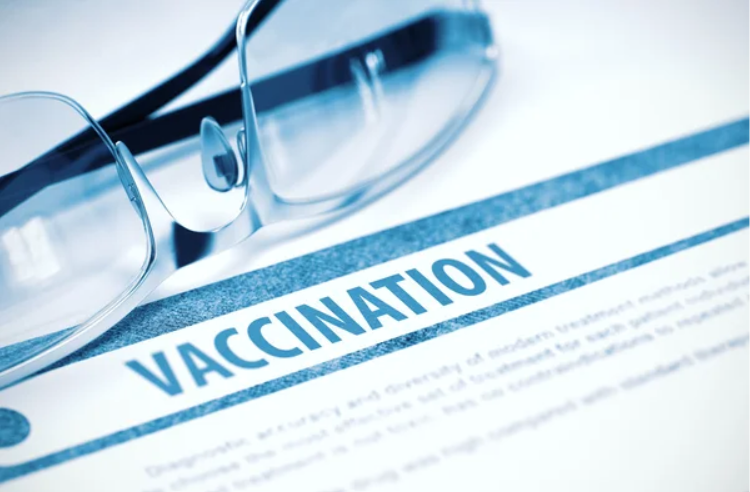When Vaccinations Are Delayed: Steps to Catch Up Safely
As responsible parents, we all want what’s best for our children’s health and well-being. One of the most crucial aspects of protecting our little ones is ensuring they receive their recommended vaccinations on schedule. However, life can sometimes throw us curveballs, and for various reasons, our children may fall behind on their immunizations. In such cases, consulting a Frisco pediatrician can help get your child’s vaccination schedule back on track and ensure they are protected against preventable diseases.
Entirely Kids Pediatrics understands the challenges parents face in maintaining vaccination schedules. With extensive expertise and a compassionate approach, we offer personalized catch-up immunization plans to help your child get back on track. Our team is dedicated to providing the best care, ensuring your child’s health and safety.
This guide will walk you through the steps to get your child back on track with their vaccines safely and effectively. Leveraging the expertise of Entirely Kids Pediatrics, you’ll gain valuable insights and practical advice to ensure your child is protected against serious diseases.
Understanding the Importance of Timely Vaccinations
Before we dive into the nitty-gritty of the catch-up process, let’s take a moment to appreciate why staying on schedule with vaccinations is so vital:
Protection Against Life-Threatening Diseases
Vaccines are our first line of defense against potentially deadly illnesses such as measles, polio, whooping cough, and meningitis. By delaying immunizations, we leave our children vulnerable to these dangerous diseases for longer than necessary, which can have serious consequences for their health.
Herd Immunity: Protecting the Vulnerable
When a high percentage of a community is vaccinated, it helps protect those who can’t receive certain vaccines due to medical reasons or age, like newborn babies or individuals with compromised immune systems. This concept, known as herd immunity, relies on timely vaccinations to be effective. By keeping our own children on schedule, we contribute to the overall health and safety of our community.
Avoiding Outbreaks and Epidemics
Delaying vaccinations not only puts your child at risk but also increases the likelihood of disease outbreaks in your community. When more children fall behind on their immunizations, it creates pockets of susceptibility where diseases can spread more easily. Staying on schedule helps prevent the resurgence of diseases that have been largely eradicated thanks to vaccines, like measles or mumps.
Common Reasons for Delayed Vaccinations
There are many reasons why a child might fall behind on their vaccination schedule, including:
- Moving to a new area and switching healthcare providers
- Difficulty accessing healthcare services due to financial or logistical barriers
- Missed appointments due to illness, scheduling conflicts, or forgetfulness
- Parental concerns about vaccine safety or side effects
- Religious or philosophical objections to vaccination
Regardless of the reason, it’s essential to work with your child’s healthcare provider to develop a plan to catch up on missed doses as soon as possible. Remember, it’s never too late to get back on track!
Steps to Catch Up on Delayed Vaccinations

Schedule an Appointment with Your Child’s Healthcare Provider
The first step in getting back on track is to schedule an appointment with your pediatrician or family doctor. They will review your child’s immunization record and determine which vaccines have been missed according to the childhood immunization schedule. Don’t worry if you’ve lost track of your child’s records – your healthcare provider can help you access their vaccination history through state or local registries.
Develop a Personalized Catch-Up Plan
Your healthcare provider will create a customized catch-up immunization schedule based on your child’s age, health status, and the number of missed doses. This plan will outline which vaccines are needed and when they should be administered to ensure your child is fully protected. Be sure to ask any questions you may have about the schedule or the vaccines themselves – your provider is there to help you feel informed and confident in your decision to catch up.
Prioritize Certain Vaccines Based on Risk
In some cases, your doctor may recommend prioritizing specific vaccines over others based on your child’s individual risk factors. For example, if your child has missed multiple doses of the measles, mumps, and rubella (MMR) vaccine during an ongoing measles outbreak in your area, this shot may be given top priority to provide protection as quickly as possible.
Follow the Catch-Up Schedule Diligently
Once you have your catch-up immunization schedule in place, it’s crucial to follow it as closely as possible. Make sure to schedule and attend all recommended appointments to ensure your child receives their missed doses in a timely manner. If you need to reschedule an appointment, do so as soon as possible to avoid further delays.
Keep Accurate Records of Progress
As you work through the catch-up process, keep detailed records of which vaccines your child receives and when. This will help you stay organized and ensure that no doses are missed or duplicated. Your healthcare provider can help you maintain accurate records, and you can also request a copy for your own files. Vaccination and regular checkups are essential to keeping your child’s health on track and ensuring they receive all necessary immunizations on time.
Addressing Common Concerns About Catching Up
Many parents worry about the safety and necessity of catch-up vaccinations. It’s important to address these concerns with factual information and open communication between healthcare providers and families.
Is it safe to give multiple vaccines at once?
Yes, giving multiple vaccines in one visit is safe and effective. In fact, this approach is often recommended to help children catch up on missed doses more quickly and efficiently. Your child’s immune system is remarkably capable of handling multiple vaccines simultaneously without increased risk of side effects. Combination vaccines, which protect against several diseases in one shot, can also help streamline the catch-up process.
Will my child need extra doses?
In most cases, children who have fallen behind on their vaccinations will not need extra doses to catch up. They will simply follow a modified schedule until they have received all the recommended doses for their age. However, in some situations, such as a delayed vaccine schedule for babies or a lapse in certain high-risk vaccines, additional doses may be necessary. Your healthcare provider will determine the appropriate number of doses based on your child’s unique circumstances.
Are there any risks associated with catching up on vaccinations?
The risks associated with catching up on delayed vaccinations are minimal and are far outweighed by the benefits of protection against serious diseases. As with any medical procedure, there is a small risk of side effects, but these are usually mild and short-lived, such as soreness at the injection site or a low-grade fever. Severe reactions to vaccines are exceedingly rare, and your healthcare provider is trained to manage them effectively should they occur.
Supporting Your Child Through the Catch-Up Process
Catching up on immunizations can be stressful for both children and parents, especially if multiple appointments are needed. Here are some tips to help make the process smoother:
- Be honest with your child about what to expect during their appointment, using age-appropriate language to explain the importance of vaccines and how they help keep them healthy.
- Bring along a favorite toy, book, or comfort object to provide distraction and reassurance during the appointment.
- Offer praise and small rewards for bravery and cooperation, such as stickers, a special treat, or extra cuddle time.
- Use pain-relieving strategies, such as numbing creams or cold packs, if recommended by your healthcare provider to minimize discomfort at the injection site.
- Stay calm and positive yourself, as your child will pick up on your emotions and react accordingly. Remember, you’re doing an amazing job protecting your child’s health!
Special Considerations for Delayed Vaccine Schedules

Catching Up on Vaccines During Pregnancy
If you’re pregnant and have fallen behind on your own vaccinations, it’s important to catch up to protect both yourself and your baby. Certain vaccines, such as Tdap (tetanus, diphtheria, and pertussis) and flu, are recommended during pregnancy to provide passive immunity to your newborn. Your OB/GYN or midwife can help you develop a catch-up schedule that’s safe for you and your growing baby.
Catching Up on Vaccines for Older Children and Teens
While much of the focus on vaccine schedules is on infants and young children, older kids and teens also need to stay up-to-date on their immunizations. As children age, they may require booster doses of certain vaccines to maintain protection, such as Tdap, meningococcal, and HPV. If your preteen or teenager has fallen behind, don’t hesitate to talk to their healthcare provider about catching up. It’s never too late to protect their health!
Traveling with an Incomplete Vaccine Schedule
If you’re planning to travel internationally with a child who has a delayed vaccination schedule, it’s crucial to catch up on any missed doses prior to your trip. Many countries require proof of vaccination for entry, and certain diseases that are rare in the United States may be more common in other parts of the world. Your healthcare provider or a travel medicine specialist can help you determine which vaccines your child needs based on your destination and their individual risk factors.
Overcoming Barriers to Catching Up on Vaccines
Barriers to catching up on vaccines can include lack of information, time constraints, and misconceptions about vaccine safety. Healthcare providers can work with families to develop personalized catch-up schedules and provide education to address these issues.
Financial Concerns and Assistance Programs
One of the most common barriers to catching up on delayed vaccinations is the cost. If you’re worried about the expense of multiple catch-up appointments and vaccines, know that there are resources available to help. The Vaccines for Children (VFC) program provides free vaccines to eligible children, including those who are uninsured, underinsured, or on Medicaid.
Many local health departments and community health centers also offer low-cost or free catch-up immunization clinics. Don’t let financial concerns stop you from protecting your child’s health – reach out to your healthcare provider or local public health office for guidance on accessing affordable catch-up services.
Addressing Vaccine Hesitancy and Concerns
Another barrier to catching up on vaccines is parental hesitancy or concern about vaccine safety. If you’ve delayed your child’s immunizations due to worries about potential side effects or other issues, it’s important to discuss these concerns with your healthcare provider.
They can provide evidence-based information and resources to help you make an informed decision about catching up. Remember, the scientific evidence overwhelmingly supports the safety and effectiveness of vaccines, and the risks of delaying immunizations far outweigh any potential risks of vaccination itself.
Logistical Challenges and Solutions
Finally, some families may face logistical challenges in catching up on delayed vaccinations, such as transportation issues, work schedules, or childcare needs. If you’re struggling to find a way to make catch-up appointments work for your family, don’t hesitate to reach out to your healthcare provider or local public health office for assistance.
Many clinics offer extended hours, weekend appointments, or mobile vaccination services to help make catch-up immunizations more accessible for busy families. With a little creativity and support, you can find a way to prioritize your child’s health and get back on track with their vaccines.
The Role of Schools and Daycare Centers in Ensuring Timely Vaccinations
Vaccination Requirements for School Entry
In most states, children are required to provide proof of certain vaccinations before enrolling in school or daycare. These requirements are designed to protect the health of all students and staff by ensuring high levels of immunity within the school community.
If your child has fallen behind on their immunizations, you may need to provide documentation of their catch-up schedule or obtain a temporary medical exemption until they are fully up-to-date. Ensuring primary care for children is crucial in maintaining vaccination schedules and overall health, helping to meet school and daycare requirements.
Navigating Vaccine Exemptions and Alternatives
While all states allow medical exemptions for children who cannot safely receive certain vaccines, some states also offer religious or philosophical exemptions. However, it’s important to note that these non-medical exemptions can put both your child and others at risk by lowering overall immunity levels within the school setting. If you’re considering seeking an exemption, discuss the risks and benefits with your healthcare provider first. In some cases, alternative vaccination schedules or delayed schedules may be a safer option than foregoing vaccines altogether.
Partnering with Schools for Catch-Up Support
Many schools and daycare centers are eager to work with families to ensure all children are up-to-date on their immunizations. If you’re having difficulty catching up on your child’s delayed vaccinations, reach out to your school nurse or administrator for guidance and support. They may be able to connect you with local resources, provide educational materials, or even host on-site catch-up clinics to make the process more convenient for busy families.
Conclusion
Falling behind on childhood vaccinations can be concerning, but it’s never too late to catch up. By collaborating with your healthcare provider and following a personalized catch-up immunization schedule, you can ensure your child receives the necessary protection to stay healthy and thrive. Vaccinations are powerful tools in preventing diseases, so taking timely action is crucial.
By addressing delayed vaccinations, you’re not only safeguarding your child’s health but also contributing to the overall well-being of your community. This proactive step demonstrates your commitment to your child’s health and sets a positive example for others. Scheduling that appointment and staying on top of vaccinations is a commendable move for any responsible parent.
For guidance and support on managing your child’s immunization schedule, reach out to Entirely Kids Pediatrics. Contact us at 469-425-3600 today to ensure your child receives the best possible care.

